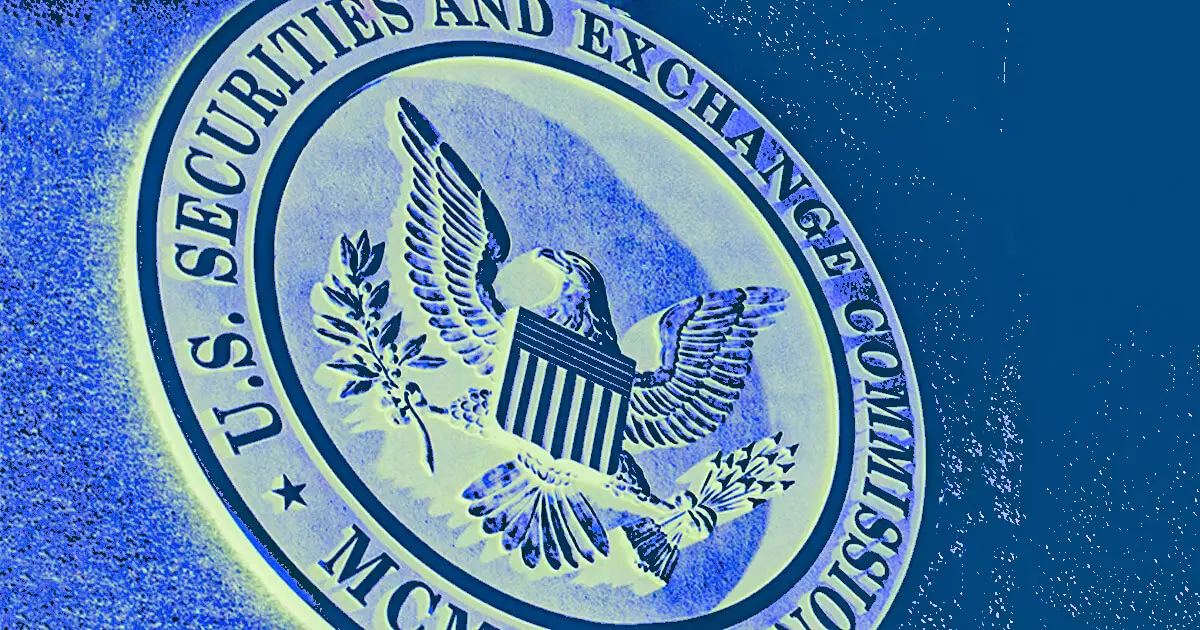In a world where innovation often outpaces regulation, the cryptocurrency industry finds itself facing a turbulent environment marked by ambiguity. Recent statements from SEC Commissioner Mark Uyeda have shed light on the dire state of crypto regulation in the United States. His comments, made during an Oct. 9 appearance on Fox Business, pinpoint a critical failure: the SEC’s reliance on enforcement actions in lieu of providing clear, comprehensive guidelines for the industry. This raises pressing questions about the efficacy of current regulatory practices and the impact of such an approach on emerging technologies.
Uyeda’s critique emphasizes a core issue within the SEC’s modus operandi: the implementation of “policy through enforcement.” This method has led to a chaotic framework where firms are left to navigate a minefield of inconsistent regulations. As Uyeda noted, this has forced judicial intervention due to varying court interpretations of laws that should be straightforward. The current approach fosters an atmosphere of uncertainty, where firms like Crypto.com and Coinbase feel compelled to challenge the SEC’s jurisdictional overreach, arguing for a reevaluation of what constitutes a security in the crypto realm.
The legal battles being waged underscore a broader struggle for clarity and fairness in the regulatory approach to digital assets. The SEC’s contentious suit against Ripple Labs, which has recently taken an unexpected twist with an appeal regarding XRP’s status, highlights the need for a more nuanced understanding of cryptocurrencies. As companies face the threat of litigation rather than guidance, the potential for innovation stagnation looms large. Uyeda’s remarks reflect a burgeoning frustration prevalent among industry players regarding the opaque criteria that dictate compliance and legality.
Moreover, Uyeda’s acknowledgment of the lack of interpretive guidance for digital assets is pivotal. He highlighted a crucial gap in the regulatory framework, calling for specific guidance on acceptable practices and compliance measures for crypto firms. This plea for clarity is echoed throughout the industry, as companies grapple with ambiguous standards that vary widely by jurisdiction. Clear definitions and parameters are essential for leveraging the full potential of cryptocurrency while protecting investors and the market at large.
The growing discontent with the SEC’s tactics is drawing the attention of lawmakers, with Congressional representatives questioning the authority and classification methods used by SEC Chair Gary Gensler. As regulatory scrutiny mounts, the call for reform becomes more urgent. The cryptocurrency landscape is constantly evolving, and without appropriate regulatory oversight, innovation may suffer. Establishing robust frameworks that delineate what constitutes securities within the digital asset ecosystem is crucial for fostering a transparent, vibrant market.
The clarion call from industry leaders like Uyeda for improved regulatory clarity represents a crucial turning point in the evolution of cryptocurrency regulation. As the sector continues to mature, the need for well-defined laws becomes imperative for both protecting consumers and allowing innovation to flourish. To ensure a balanced and thriving environment, stakeholders at all levels must come together to advocate for a regulatory approach that empowers rather than stifles the growth of digital assets. Only through thoughtful dialogue and clear legislation can the promise of cryptocurrency be fully realized.



















Leave a Reply